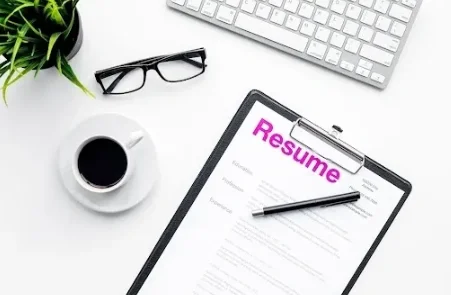Blog
Questions to ask in an interview
As a candidate, you can prepare for interview questions all day, but you will not know what will be asked until you get to the interview at the end of the day.
However, there is one question that I promise the person interviewing you will ask, – “do you have any questions for me?” And your answer should be “yes!”. Always, always, always ask questions during an interview.
And here is why.
It shows you are interested in the position and excited about the company. It shows that you are organized and how well you would fit in. The questions you ask your potential supervisors can reveal what it’s like to work with them. The employer will think you don’t care if you don’t ask questions. They will think you are just desperate to get a job.
Asking questions is a time to shine and demonstrate the research you did for the interview, hopefully above and beyond reading the job description and having a glance at the website. Look at the news section on the company website or search online for recent news articles and use that as talking points. For example: “I read on the news/your website that your company has invested in X. That’s interesting. Will that have any impact on the department and position I’m applying for”; This is an intelligent-market-related question. Or explore and ask questions about the company’s core values, mission, and vision statement; This shows that you have a genuine interest in joining the team.
Questions show that you are an educated and creditable candidate.
What if you are interviewing a few different people on the same day? Do you still need to ask questions to each person who interviews you? Yes, absolutely. It’s like saying only one person’s opinion of the interview matters. The people interviewing you will come together and discuss what they liked and didn’t like from each candidate. One of the worst things you can say to an interviewer is, “the last person answered all of my questions.”
You should be selling yourself to an employer, and the employer should be selling you on a job. After all, the job-hunting journey is a two-way street. Don’t you want to know what kind of company and position you will be working for? For example, let’s say you ask the company what the career growth opportunities are? And what if the company says there isn’t much room to grow or that they prefer to hire externally versus internally? Do you want to work for them? Is that your career goal to be in the same position for the rest of your life? And maybe it is, then that is great. Good thing you asked that question. But if it’s not, it’s also a good thing you asked that question because you wouldn’t want to waste your time or the company’s time continuing with the hiring process.
Hopefully, I’ve convinced you why asking questions during an interview is good (and practically essential).
Now let’s dig into the types of questions you should ask.
There are three key categories to focus on: job-specific, interviewer specific, and company-specific.
Below are a few examples.
Job-specific:
- What are the training process and the typical learning curve?
- What type of review process does the company use?
- Are there specific metrics or goals that employees are evaluated against?
- What do you think the biggest challenge will be for the person in this position?
- What does it take to be successful in this position?
Interviewer-specific:
- What attributes are you looking for in candidates?
- How long have you been working for the company?
- What do you like most about working for the company?
- What do you like least about working for the company?
Company-specific:
- How would you describe the company culture?
- What leadership style does the team respond to best?
- What struggles has the team had in the past? Tip: when they give you an answer, provide a solution to that)
- What was the last team-building event?
- What are some of the long-term goals for the company?
- Where do you see the company in 10-15 years?
- How does the company support a learning and growing atmosphere? For example, are employees encouraged and financially supported to go to conferences?
Tip: Do not be afraid to write down a list of questions and bring them to the interview. Also, don’t be afraid to take notes during the interview. It goes back to showing interest in the company and being organized.
Next, let’s discuss the questions you shouldn’t ask and the timing of specific questions. Because yes, it is important.
Naturally, there are questions everyone will want to be answered, such as “what is the vacation policy,” “what does the medical plan look like,” or “is their flexibility with the work hours.” These are valid questions that you need to know, but these types of questions do not say much about your personality or genuine interest in the company you are hoping to join. So, save company policy questions until the end of the interviewing process. In the first and second interviews, you want to focus on asking about the role and how you will contribute to the company and group. You want to seem motivated to come in and quickly get up to speed. So, ask questions that demonstrate this.
Think of it like dating. When you first meet someone, you want to get to know the person first. You are deciding if they are someone you could see yourself with in the future. You wouldn’t want to ask them about their credit score and banking information on the first date. You’d wait until things are more serious about bringing up questions like that.
Whatever questions you decide to ask, the key is to ask something. While the answer to the famous question, “do you have any questions,” may seem like a minor part of the interview, it is not. It is the last impression you will leave, so make it a good impression.
Ask questions.
Contact NimoHR!!
Latest Posts
- How to Update Your Resume for 2025: Expert Tips from NimoHR
- Expert Resume Formatting Tips to Beat Applicant Tracking Systems (ATS)
- Industry-Specific CV Writing: Why One-Size-Fits-All Doesn’t Work
- How a Professionally Written CV Can Speed Up Your Job Search
- Why LinkedIn Profile Optimization is the Secret to Standing Out in a Competitive Job Market
- How a LinkedIn Profile Writer Can Transform Your Online Presence
- Enhancing Your Job Application: The Value of a Cover Letter Review Service
- Common Mistakes in Cover Letters and How Professional Services Can Help
- Overcoming Common Interview Challenges: Gaps in Employment and Career Transitions
- The Role of Non-Verbal Communication in Job Interviews
- Mastering the Salary Conversation: Essential Strategies for Effective Negotiation
- Choosing Between Quitting and Getting Fired: What’s Best for Your Career?
- Mastering LinkedIn Skills: How to Choose the Best Skills for Career Growth
- 5 Proven Strategies to Send LinkedIn Invitations That Get Accepted
- Crafting the Perfect Cover Letter for an Internal Position: A Step-by-Step Guide
- Did You Know? Your Resume Reference Page Could Make or Break Your Job Application
- Crafting a Layoff Notice: Effective Communication During Work Shortages
- Mastering Behavioral Interview Questions: Tips and Examples
- In-Demand Skills for 2024: What to Include on Your Resume
- Navigating Career Transitions: Reshaping Your Resume for a New Path
- How to Optimize Your LinkedIn Profile
- Cracking the Job Interview: Insights from NimoHR’s Interview Preparation Sessions
- Using LinkedIn Articles to Showcase Your Expertise
- Creating a Standout Resume for Phoenix Employers: Tips on crafting a resume tailored to the preferences of local Phoenix employers
- Resume Trends for 2024: What You Need to Know
- From First Impression to Final Question: Excelling at the Four Key Interview Evaluation Points
- Behind the Screens: Understanding the Role of ATS in the Hiring Process
- How to Create the Perfect Executive LinkedIn Profile?
- How to Write a Cover Letter That Gets You the Job You Want
- How To Build A Resume
- Get Professionally Written Resumes And LinkedIn Profiles
- Top 5 Reasons To Avail Of LinkedIn Resume Writing Services
- Helpful Tips For Writing A Perfect Cover Letter
- How to Ace Your Next Interview
- 15 Things To Leave Off Your Resume
- Applying Strategically and Networking
- Effective Interview Strategies
- The Best Job-Board Sites
- 4 Simple Signs That You Should Quit Your Job
- The most common interview questions & the best way to answer them
- How to beat those pesky Applicant Tracking Systems
- Jump-start your career during the COVID-19 crisis
- Career consulting ROI. Why you should purchase a professional resume writing services
- The Importance of a Company Culture and HR’s Role
- Why companies should offer outplacement services and career coaching
- Interview Tips: Back to the Basics
Categories
Related Posts

How to Update Your Resume for 2025: Expert Tips from NimoHR
Updating your resume for 2025 requires more than just listing your latest job. With applicant tracking systems (ATS) becoming more sophisticated, you need to format and write your resume strategically to stand out. At NimoHR, we specialize in helping professionals craft impactful resumes that pass ATS filters and impress hiring managers. If you’re ready to… Continue reading How to Update Your Resume for 2025: Expert Tips from NimoHR
Read More
Expert Resume Formatting Tips to Beat Applicant Tracking Systems (ATS)
In today’s competitive job market, a well-crafted resume is essential—but even more important is ensuring it passes the Applicant Tracking System (ATS). ATS software is designed to filter out resumes that don’t meet specific criteria, including formatting, keywords, and structure. Many highly qualified candidates miss out on interviews because their resumes fail to pass the… Continue reading Expert Resume Formatting Tips to Beat Applicant Tracking Systems (ATS)
Read More
Industry-Specific CV Writing: Why One-Size-Fits-All Doesn’t Work
In today’s highly competitive job market, standing out is more important than ever. Many job seekers make the mistake of using a generic CV for all applications, believing that a broad approach will maximize their chances. However, recruiters and hiring managers are looking for candidates who demonstrate a clear understanding of the industry, its requirements,… Continue reading Industry-Specific CV Writing: Why One-Size-Fits-All Doesn’t Work
Read More